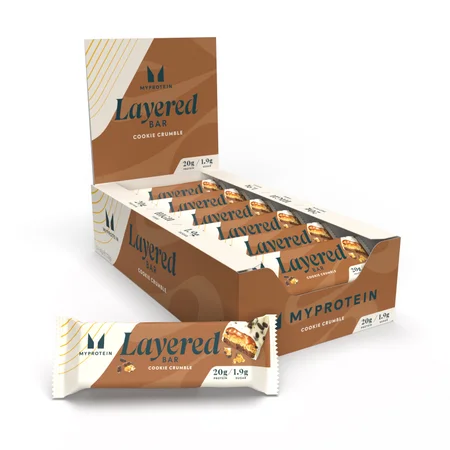How Many Calories Should You Eat For Your Goal?

You likely know that we all need different amounts of calories based on our lifestyles and body types. Our basal metabolic rate, or resting energy expenditure, is the baseline number of calories your body requires just to survive - digestion, breathing, and basic movement all need calories for our bodies to work properly.
They're the key to packing on mass, and to losing weight - no matter what the fad diets tell you. Read on to learn how to calculate the proper number of calories for you, whether you’re trying to lose weight, maintain your weight, or build muscle mass.

What are Calories?
Calories are a measure of energy; technically 1 calorie is the amount of energy it takes to heat one gram of water by 1 degree Celsius. Calories help us measure how much energy we are consuming in our food and how much energy we are burning off when we exercise.
Why are they important?
You can think of calories like the fuel we put into our cars. Eventually you'll run of out petrol and have to refuel, or you won’t be able to get to where you want to go.
Our bodies are similar - we require fuel to function properly, and even though we can coast for small periods of time, eventually when we hit the accelerator, we need to have fuel to move forward.
They’re also important day to day to ensure your mind is functioning properly.
Calories for Weight Loss
When you want to lose weight, the key is to sustain a calorie deficit - meaning you’re burning slightly more calories each day than you are eating. While a deficit is the key for weight loss, you should aim for about a 500-700 calorie per day deficit to lose about 1-1.5 pounds per week. Creating a much larger deficit can be difficult to sustain and likely lead to failure and frustration, so it’s much better to have a smaller deficit to create sustainable, healthy weight loss.
The recommendations in this table are only examples. Based on your height and weight, you may require more or fewer calories. Check out our tools to help you calculate your custom basal metabolic rate and total energy expenditure.
A sedentary lifestyle means no structured exercise, just movement of daily living. Lightly active is standing/walking for the majority of the day but no structured exercise. Moderately active means walking (or the equivalent) 1.5-3 miles per day at 3-4 miles per hour. Active living means walking (or the equivalent) more than 3 miles per day at 3-4 miles per hour. Highly active individuals do more structured exercise in addition to an active lifestyle.1
The goal here is to lose between 1 and 2lbs per week. If you are losing more quickly than that, slightly increase your calories or slightly decrease your exercise. Losing too much weight too quickly makes you more likely to gain it back. If you aren’t seeing at least 0.5-1lb per week, consider increasing your exercise intensity to burn more calories. It’s all about balance!
| Gender | Age | Calories (Sedentary) | Calories (Lightly Active) |
Calories (Mod. Active) |
Calories (Highly Active) |
| Female1 | 18-25 | 1700 | 1850 | 1900 | 2100 |
| 26-30 | 1500 | 1650 | 1800 | 2000 | |
| 36-50 | 1500 | 1650 | 1700 | 1900 | |
| 51+ | 1400 | 1500 | 1700 | 1900 | |
| Male1 | 18-25 | 2200 | 2350 | 2500 | 2700 |
| 26-35 | 2100 | 2200 | 2350 | 2500 | |
| 36-55 | 1900 | 2050 | 2300 | 2450 | |
| 56+ | 1900 | 2000 | 2100 | 2300 |
Maintenance Calories
Use this chart as a starting point to determine your maintenance calorie level.
Measure yourself once a week, at the same time of day, and determine if you need to increase or decrease your calories based on any weight gain or loss. On days when you are very active, you might increase your calories slightly, and on very sedentary days you may decrease them slightly.
| Gender | Age | Calories (Sedentary) | Calories (Lightly Active) |
Calories (Mod. Active) |
Calories (Highly Active) |
| Female1 | 18-25 | 2000 | 2150 | 2200 | 2400 |
| 26-30 | 1800 | 1950 | 2100 | 2300 | |
| 36-50 | 1800 | 1950 | 2000 | 2200 | |
| 51+ | 1600 | 1800 | 2000 | 2200 | |
| Male1 | 18-25 | 2500 | 2650 | 2800 | 3000 |
| 26-35 | 2400 | 2500 | 2650 | 2800 | |
| 36-55 | 2200 | 2350 | 2600 | 2750 | |
| 56+ | 2200 | 2250 | 2400 | 2600 |
Calories for muscle mass
When you’re trying to build muscle mass, you want to focus not only on calories, but also protein intake. Bulking requires extra calories (about 350-500 per day) and protein to help muscles repair and grow. Try to get 35-40% of your daily calories from protein.
Weigh yourself weekly at the same time of day, and if you gain about 1-2lbs, you’re in a good bulking pattern. If you aren’t seeing any gains, re-examine your workout routine and consider adding 200 more calories per day. If you’re seeing consistent weight gain of 2lbs or more, you may need to slightly decrease your calorie intake to prevent gaining fat.
| Gender | Age | Calories (Sedentary) | Calories (Lightly Active) |
Calories (Mod. Active) |
Calories (Highly Active) |
| Female1 | 18-25 | 2350 | 2450 | 2500 | 2700 |
| 26-30 | 2100 | 2250 | 2400 | 2600 | |
| 36-50 | 2100 | 2250 | 2300 | 2500 | |
| 51+ | 1900 | 2100 | 2300 | 2400 | |
| Male1 | 18-25 | 2900 | 3050 | 3200 | 3400 |
| 26-35 | 2800 | 2900 | 3050 | 3200 | |
| 36-55 | 2600 | 2750 | 3000 | 3150 | |
| 56+ | 2400 | 2450 | 2800 | 3000 |

Take Home Message
When it comes to gaining or losing weight, it should be as simple as addition and subtraction. However, it is very difficult to calculate exactly how many calories we burn from exercise. It’s important to make sure you’re adequately fuelling your muscles for your workouts and build in recovery time. If you aren’t seeing the changes you’re hoping for, try making small adjustments and monitor your progress over time - consistency is key for success.

Claire is a Registered Dietitian through the Academy of Nutrition and Dietetics and a board-certified Health and Wellness Coach through the International Consortium for Health and Wellness Coaching. She has a Bachelor of Science in Biology and a Master’s degree in Clinical Dietetics and Nutrition from the University of Pittsburgh.
Talking and writing about food and fitness is at the heart of Claire’s ethos as she loves to use her experience to help others meet their health and wellness goals.
Claire is also a certified indoor cycling instructor and loves the mental and physical boost she gets from regular runs and yoga classes. When she’s not keeping fit herself, she’s cheering on her hometown’s sports teams in Pittsburgh, or cooking for her family in the kitchen.
Find out more about Claire’s experience here.
- Institute of Medicine. Dietary Reference Intakes for Energy, Carbohydrate, Fiber, Fat, Fatty Acids, Cholesterol, Protein, and Amino Acids. Washington (DC): The National Academies Press; 2002.






